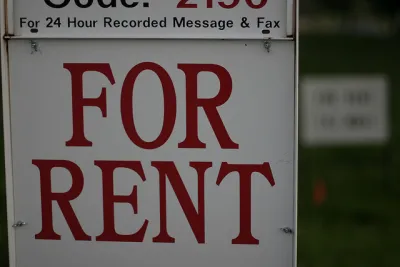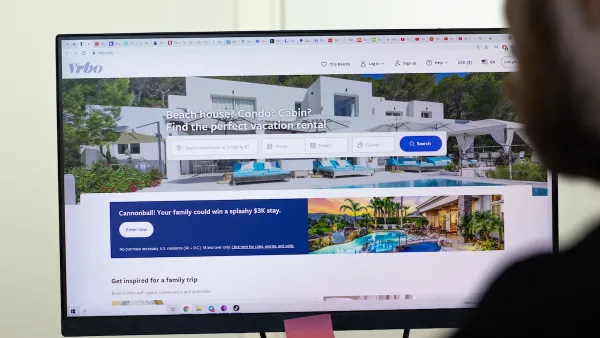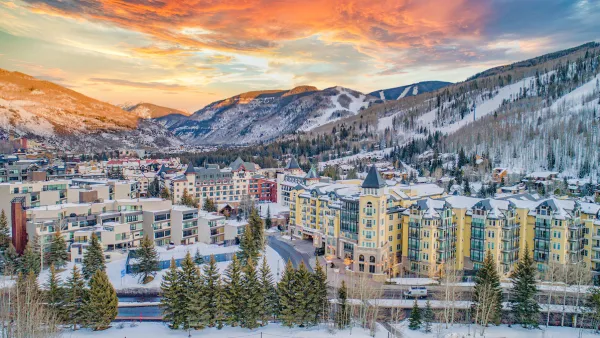Does apartment-sharing reduce regional housing supply? Probably not very much.

Over the past few years, the growth of Airbnb.com has made it much easier for people to rent out rooms in their houses and apartments. Before Airbnb, a traveler who wanted an alternative to hotels (which tend to be (a) quite expensive or (b) located in desolate-looking suburban arterials), would most easily be able to find a room through a temporary listing on Craigslist. However, these travelers had no way of knowing anything about their hosts, and would-be hosts had no way of knowing anything about their renters. By contrast, Airbnb, by providing a forum for hosts to review guests and vice versa, does allow some screening to take place.*
However, Airbnb has become politically controversial in high-priced, regulation-obsessed cities like Los Angeles and New York. Hotels and hotel unions quite understandably see Airbnb as competition in the short-term lodging industry, and wish to regulate it intensively (if not to destroy it). One common anti-Airbnb argument** is that Airbnb, by making short-term lodging more affordable, actually reduces the supply of traditional apartments—that is, apartments leased for a month or more at a time). The argument runs as follows: units that are on Airbnb for a few days at a time would, in the absence of Airbnb, be rented out as traditional apartments. Thus, Airbnb reduces the housing supply and raises rents.
This argument rests on an essentially unprovable claim: that Airbnb units would otherwise be rented out as traditional apartments. More importantly, the argument proves too much. If Airbnb hosts reduce the supply of apartments by not using their houses and spare rooms as traditional apartments, why isn't this equally true of hotels who are not using their rooms as apartments, or homeowners who are not renting out every spare room? And if homeowners and hotels are reducing the rental housing supply, why shoudn’t they be forced to rent out their units as traditional apartments?
Finally, the argument rests on the assumption that Airbnb includes a significant share of the rental housing market. For example, LAANE (a union-affiliated policy organization based in Los Angeles) recently issued a report claiming that Airbnb takes ,7316 units off the Los Angeles rental market, which “is equivalent to seven years of affordable housing construction inLos Angeles." But since Los Angeles produces very little "affordable housing" (whatever that term means) this statistic proves nothing.
A better way of understanding Airbnb’s impact, if any, on rents is to compare it to the total number of housing units in Los Angeles. There are just over 1.2 million housing units in the city of Los Angeles; thus, Airbnb units are roughly 0.6 percent of the housing market. There are about 700,000 rental units in Los Angeles—so even if every single Airbnb unit would otherwise be part of the rental market, Airbnb units would comprise only 1 percent of the rental market. (I very much doubt that this is the case, if only because since some Airbnb units are in privately owned homes and not every part-time Airbnb landlord wants a permanent roommate). Thus, it seems to me that even if every single Airbnb unit would be used as traditional apartments in the absence of Airbnb, its impact on regional housing markets would be small.
*Though perhaps not much: since the reviews are not anonymous, a host who reviews guests critically (or a guest who reviews hosts critically) may get negative reviews and less business in the future.
**This essay focuses on the relationship of Airbnb and affordable housing; however, I note that Airbnb does raise a variety of other legal and policy concerns unrelated to this little essay.

Analysis: Cybertruck Fatality Rate Far Exceeds That of Ford Pinto
The Tesla Cybertruck was recalled seven times last year.

National Parks Layoffs Will Cause Communities to Lose Billions
Thousands of essential park workers were laid off this week, just before the busy spring break season.

Retro-silient?: America’s First “Eco-burb,” The Woodlands Turns 50
A master-planned community north of Houston offers lessons on green infrastructure and resilient design, but falls short of its founder’s lofty affordability and walkability goals.

Test News Post 1
This is a summary

Analysis: Cybertruck Fatality Rate Far Exceeds That of Ford Pinto
The Tesla Cybertruck was recalled seven times last year.

Test News Headline 46
Test for the image on the front page.
Urban Design for Planners 1: Software Tools
This six-course series explores essential urban design concepts using open source software and equips planners with the tools they need to participate fully in the urban design process.
Planning for Universal Design
Learn the tools for implementing Universal Design in planning regulations.
EMC Planning Group, Inc.
Planetizen
Planetizen
Mpact (formerly Rail~Volution)
Great Falls Development Authority, Inc.
HUDs Office of Policy Development and Research
NYU Wagner Graduate School of Public Service





























